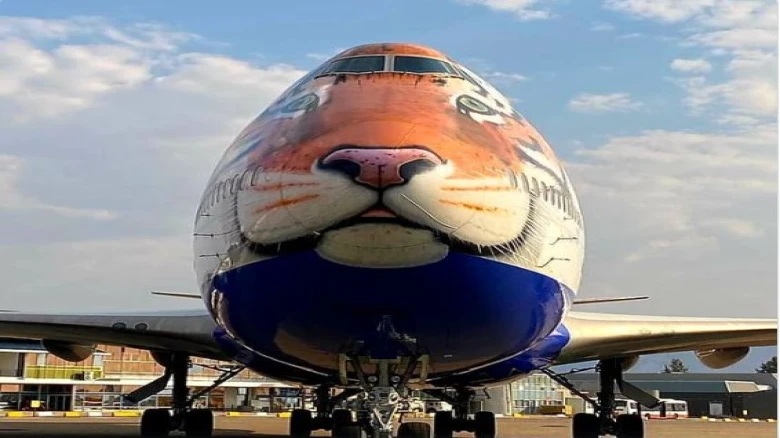Regional

Digital Desk: On Thursday, the Indian High Commission in Namibia
published a photo of an aeroplane that had landed there to transport eight
cheetahs to Kuno National Park in Madhya Pradesh, where they will establish a
new home.
The creatures, which were extinct in India for more than seven decades,
will be reintroduced on Saturday, September 17. Prime Minister Narendra Modi,
who will turn 72 this year, celebrates his birthday on this day.
The Indian
aircraft's front has been painted to resemble a cheetah's face, as shown in the
high commission's tweet.
The tweet from
the Indian high commission stated, "A special bird touches down in the
Land of the Brave to bring goodwill emissaries to the Land of the Tiger."
Eight cheetahs,
five female and three male, will be kept in the main cabin of the aeroplane,
and veterinarians will have complete access to the large cats for the whole
flight. In order to keep the animals from getting motion sickness throughout
the lengthy intercontinental travel, they won't be fed.
In order to get
to Kuno-Palpur National Park in Bhopal, the plane would first land in Jaipur,
Rajasthan, according to principal chief conservator of forests for Madhya
Pradesh JS Chauhan. On Saturday between six and seven in the morning, the
cheetahs will arrive in Rajasthan, where they will be transferred to a
helicopter and flown to Kuno.
To greet the huge
beasts, Modi will be present in the national park.
According to
Chauhan, the cheetahs will spend their first month in India in modest
enclosures before being moved to larger ones for a few months to assist them
acclimate to their environment. They will later be released into the wild, he
continued.
The two cheetahs
that are "best friends" and stay together at all times have received
vaccinations and satellite collars. Their arrival in India will mark the
conclusion of a 12-year cooperation effort between the Indian government and
experts and Namibia's Cheetah Conservation Foundation (CCF) to rescue cheetahs
in the wild.
In May, the
agreement between Namibia and India was completed. CCF founder Laurie Maker
expressed her "thrill" and "extraordinary pride" regarding
the translocation project. This effort would not have been possible without
thorough research and commitment to cheetah conservation, she continued.
After the last one died in 1947, the cheetah was formally declared
extinct in India in 1952. Cheetahs, one of the oldest large cat species, had a
once-vast distribution across Asia and Africa and had ancestors that date back
around 8.5 million years. Less than 9% of the big cats' historical habitat is
already occupied, and there are just about 7,500 left in the wild.
2009 saw the beginning of the African Cheetah Introduction Project
in India. Due of the Covid-19 outbreak, big cats at Kuno were not reintroduced
by November of last year, according to officials.
Leave A Comment